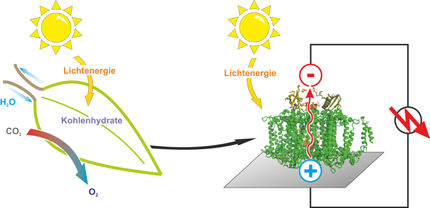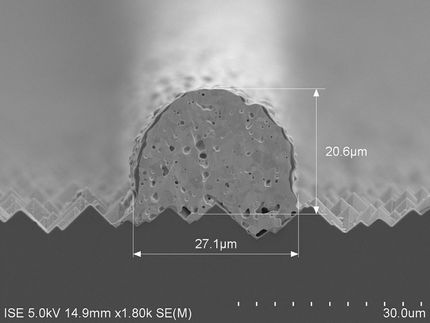Colored solar cells could make display screens more efficient
A new kind of screen pixel doubles as a solar cell and could boost the energy efficiency of cell phones and e-readers. The technology could also potentially be used in larger displays to make energy-harvesting billboards or decorative solar panels.
Jay Guo, a professor in the University of Michigan’s Department of Electrical Engineering and Computer Science, has developed the reflective photovoltaic color filter device that can convert absorbed light to electricity. The research is newly published ACS Nano.
In traditional LCDs, less than 8 percent of the backlight actually reaches a viewer’s eyes. The rest is absorbed by color filters and polarizers, Guo said.
“This absorbed light is totally wasted,” Guo said. “It becomes heat. You can feel it if you put your hand close to a monitor. Why not try to harvest some of this energy?” Guo said.
That’s just what he has done. Guo’s new filter can convert to power about 2 percent of the light that would otherwise be wasted. This could add up to a significant amount in small electronics, Guo said.
The researchers created the new filter by adding organic semiconductor solar cells to an elegant and ultra-thin color filter, similar to what Guo’s lab had created over a year ago. That filter is composed of nano-thin sheets of metal with precisely spaced gratings that act as resonators, trapping and reflecting light of a particular color. The color depends only on the amount of space between the slits.
At just 200 nanometers thick, the new filter is 100 times thinner than traditional colorant-based filters - a feature that would be attractive for use in future ultrathin colored display devices.
The paper is titled, “Photonic Color Filters Integrated with Organic Solar Cells for Energy Harvesting.” The university is pursuing patent protection for the intellectual property.
Most read news
Organizations
Other news from the department science

Get the chemical industry in your inbox
By submitting this form you agree that LUMITOS AG will send you the newsletter(s) selected above by email. Your data will not be passed on to third parties. Your data will be stored and processed in accordance with our data protection regulations. LUMITOS may contact you by email for the purpose of advertising or market and opinion surveys. You can revoke your consent at any time without giving reasons to LUMITOS AG, Ernst-Augustin-Str. 2, 12489 Berlin, Germany or by e-mail at revoke@lumitos.com with effect for the future. In addition, each email contains a link to unsubscribe from the corresponding newsletter.




















































